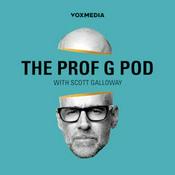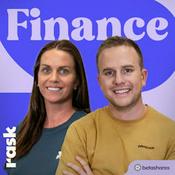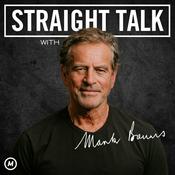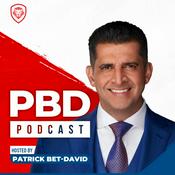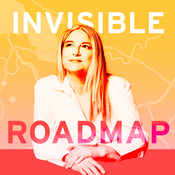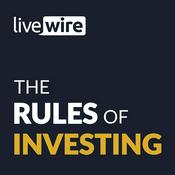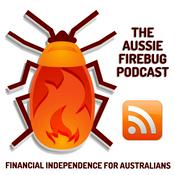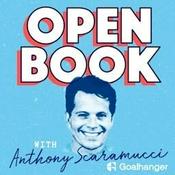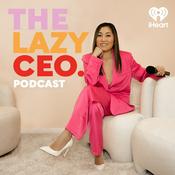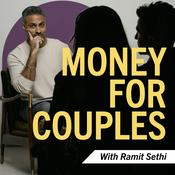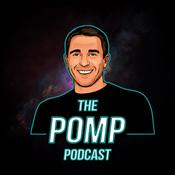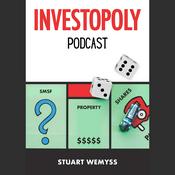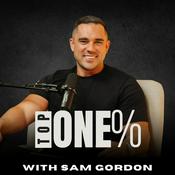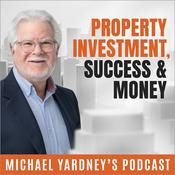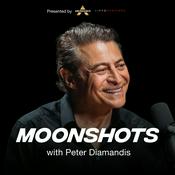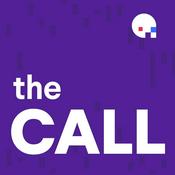14 episodes

Moments in Mind - Best of Season 2
15/12/2025 | 22 mins.
In this special bonus episode, we revisit the most powerful insights, heartfelt moments, and thought-provoking ideas from Season 2 of Moments in Mind, with Pearson Country Ambassador, Australia and VP Legal Taha Haidermota. From inspiring conversations with clinicians and educators to compelling breakthroughs in psychology and mental health, this compilation celebrates the voices and stories that shaped our second season.Pearson Clinical AssessmentsShop allShop training

Oliver’s mission to make mental healthcare more accessible and inclusive
03/11/2025 | 27 mins.
We’ve saved one of our best conversations for last! In this season finale of Moments in Mind, Dr Oliver Suendermann takes us behind the scenes of Intellect in Singapore, one of the world’s fastest-growing mental health platforms. As Vice President, Clinical, Oliver spearheads efforts to dismantle stigma and radically scale access to mental healthcare by combining cutting-edgetechnology, cultural sensitivity and clinical excellence.Oliver also shares anecdotes and learnings from his storied career, including spells at prestigious London institutions Bethlem Hospital (yes, the origin of the term “bedlam”) and The Priory. Along the way, he reflects on some remarkable moments from his career, includingtreating clients crippled by severe trauma and obsessional disorders.Oliver vividly describes one memorable story, that of “Eric”, who was grappling with both genocide trauma and debilitating OCD. Through compassion, exposure therapy and trauma-focused interventions like imagery rescripting, Oliver helped Eric reclaim his life. It’s an inspiring reminder that—with the right care and support—some people can recover from mental disorders.This episode is a fitting conclusion to season two. Ending on a note of hope and humanity, witha bold vision for the future: a world where taking care of your mental health is stigma-free and“as normal as brushing your teeth”.Find out more about Intellect.Timestamps:00:03:45 Oliver’s experiences treating people with anxiety disorders at Bethlem Hospital in South London00:08:45 How Oliver helped a young man overcome OCD and underlying trauma at The Priory in North London00:15:00 The effect that breakthrough moments with clients has on Oliver himself00:17:30 Intellect’s mission to make mental health care more accessible, affordable, culturally relevant, timely and fair00:20:20 The business case for employers to prioritise employee mental health00:21:15 Intellect’s expansion into physical clinics to provide assessments and interventions for children00:22:45 The benefits of standardised assessments being available in digital formats00:23:40 The changes that Oliver wishes to see in mental health care globallyDisclaimerClient details and narratives presented in this podcast have been altered or omitted to protect confidentiality and privacy. Any similarities to actual individuals, events, or circumstances are entirely coincidental. Each client interaction is unique, and the outcomes or breakthroughs described are specific to the individuals involved. These examples are provided for illustrative purposes only and should not be interpreted as guarantees or promises of similar results for others.Pearson Clinical AssessmentsShop allShop training

Psychologist Scarlet Leong savours her “Oh, now I see!” moments with families
20/10/2025 | 27 mins.
From formative experiences in her youth to lessons learned in her early career, educational psychologist Scarlet Leong opens up about the moments that have shaped her remarkable career. Along the way, she shares illuminating stories of some of the children she has helped, and she explains how standardised assessments help her to achieve “Oh, now I see!” moments for families.Scarlet combines her clinical expertise with deep empathy as Senior Specialist Psychologist at the Dyslexia Association of Singapore. She describes how her investigative work puts together different pieces of the puzzle—such as behavioural observations, assessment scores and, crucially, noticing the WAY children complete assessments—to reveal how each child learnsbest.Scarlet likens standardised assessments to “a GPS for learning”. They help to map the learningterrain for children, which then allows parents and educators to plot the best path to support their learning needs. When everyone has a better understanding of a child, then they canensure the child receives the right support.Find out more about the Dyslexia Association of Singapore.Timestamps:00:02:20 Scarlet’s fond childhood memory of a safe and welcoming classroom00:03:30 What led Scarlet to pursue psychology as a career00:05:20 Dyslexia definition and myth busting00:08:20 How the Dyslexia Association of Singapore supports people00:11:20 How standardised assessments contribute to “Oh, now I see!” moments for children, parents and educators00:16:30 A case study of how Scarlet’s investigative skills helped a child and her mother00:22:30 The benefits of standardised assessments being available in digital formats00:23:22 The importance of giving children safe spaces, like the one Scarlet experienced in her school days00:24:30 What Scarlet hopes to achieve with the Dyslexia Association of SingaporeDisclaimerClient details and narratives presented in this podcast have been altered or omitted to protect confidentiality and privacy. Any similarities to actual individuals, events, or circumstances are entirely coincidental. Each client interaction is unique, and the outcomes or breakthroughs described are specific to the individuals involved. These examples are provided for illustrative purposes only and should not be interpreted as guarantees or promises of similar results for others.Pearson Clinical AssessmentsShop allShop training

Globe-trotting Priscilla Lee helps clients rewrite their inner stories
06/10/2025 | 31 mins.
From Singapore to Canada, psychologist Priscilla Lee proves that psychology is a truly global profession and one that transcends borders and cultures. In this episode of Moments in Mind, she shares the personal and professional experiences that shaped her career, from early memories of self-doubt in a high-achieving classroom to setting up her own therapy practice in Calgary.Priscilla discusses her passion for helping neurodiverse clients, including twice-exceptional individuals, who are both gifted and experience learning differences. She explains how her clinical work goes beyond diagnosis, combining deep understanding of the brain with practical strategies that help clients realise their full potential.Standardised assessments are a cornerstone of Priscilla’s practice. Whether it's identifying ADHD, autism or learning challenges, these tools reveal key information that allows her and her team to recommend meaningful support strategies. Priscilla describes therapy as a collaborative journey and one that involves the child, their family, and educators all working together.As Priscilla explains it, “My job is to put myself out of a job.” For her, true success is when a client no longer needs her support, as they’ve developed the skills, confidence, and resilience to move forward on their own.Subscribe to Pearson’s Moments in Mind podcast on Apple Podcasts, Spotify or wherever you get your podcasts.Find out more about Innerlogue Therapy and PsychologyTimestamps:00:02:06 Priscilla’s early school memory and feelings of self-doubt00:04:37 Why she shifted from computer studies to psychology and philosophy00:06:11 Her work with neurodiverse and twice-exceptional individuals00:09:40 A case study: helping a child with dyspraxia succeed in math00:12:33 How she empowers clients to build skills and independence00:15:46 Why Priscilla moved from Singapore to Calgary00:20:03 Founding and growing Innerlogue Therapy and Psychology00:21:24 Advice for psychologists starting their own practice00:23:51 The power of assessments and Q-global tools00:26:04 Why collaboration with parents and schools is key00:29:44 What Priscilla hopes to be remembered forDisclaimerClient details and narratives presented in this podcast have been altered or omitted to protect confidentiality and privacy. Any similarities to actual individuals, events, or circumstances are entirely coincidental. Each client interaction is unique, and the outcomes or breakthroughs described are specific to the individuals involved. These examples are provided for illustrative purposes only and should not be interpreted as guarantees or promises of similar results for others.Pearson Clinical AssessmentsShop allShop training

Psychologist Adrian Toh shares his quiet moments of truth
22/09/2025 | 29 mins.
In this episode we meet the multi-talented clinical psychologist Adrian Toh, who is driving positive change for Singapore on several fronts.As President of the Singapore Psychological Society, Adrian is advocating for regulation to set quality standards that will protect the public and elevate trust in the profession. As Adjunct Senior Lecturer at the National University of Singapore, he’s helping to champion curiosity, compassion and cultural sensitivity among the next generation of psychologists. And as a clinical psychologist at The Other Clinic, Adrian goes to great lengths to ensure each individual client receives his full attention and expertise.Adrian has enjoyed a varied and fascinating career that has included spells working in hospital, prison, education, clinics and more. In the podcast, he shares some moving recollections of working with clients, such as one who was struggling with chronic pain, and another who was battling OCD. Adrian describes some his motivations, strategies and breakthrough moments. And he explains how standardised assessments benefit clinicians and clients alike.The breadth of his experience over the past two decades has given Adrian a bird’s eye view of how Singaporean attitudes have changed towards mental health. So, in this episode, he reflects on the bigger picture, considering where the profession has come from and where it’s headed next.(And for any younger psychologists listening, Adrian has some comforting advice to help you get through difficult phases of your career.)Subscribe to Pearson’s Moments in Mind podcast on Apple Podcasts, Spotify or wherever you get your podcasts.Find out more about The Other Clinic.Find out more about the National University of Singapore.Find out more about Singapore Psychological Society.Timestamps:00:04:00 Adrian’s early career dilemma and how “a quiet, honest moment of clarity” made him choose psychology00:06:00 Changing attitudes towards mental health in Singapore00:08:00 Adrian’s breakthrough moments with a client who was struggling with chronic pain00:12:00 How Adrian overcame moments of self-doubt and difficulty in his early career00:14:00 Adrian’s moments of curiosity, inspiration and joy when teaching students00:16:00 Working in a busy clinic with many clients, Adrian explains how he maintains a clear focus on each and every individual00:17:30 Adrian’s breakthrough moments with a client who was struggling with OCD00:20:20 How Adrian draws upon standardised assessments to provide clarity, structure and objectivity00:22:30 How clinical assessments are helping to maintain high standards in psychological practice in Singapore00:24:20 Adrian’s ambition to shape the future of psychology to benefit Singaporeans and clinicians alikeDisclaimerClient details and narratives presented in this podcast have been altered or omitted to protect confidentiality and privacy. Any similarities to actual individuals, events, or circumstances are entirely coincidental. Each client interaction is unique, and the outcomes or breakthroughs described are specific to the individuals involved. These examples are provided for illustrative purposes only and should not be interpreted as guarantees or promises of similar results for others.Pearson Clinical AssessmentsShop allShop training
More Business podcasts
Trending Business podcasts
About Moments in Mind
Listen to Moments in Mind, Working Hard with Grace Beverley and many other podcasts from around the world with the radio.net app
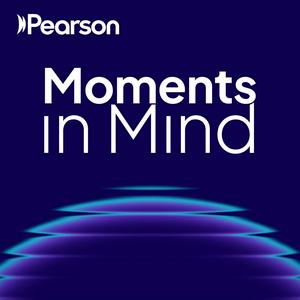
Get the free radio.net app
- Stations and podcasts to bookmark
- Stream via Wi-Fi or Bluetooth
- Supports Carplay & Android Auto
- Many other app features
Get the free radio.net app
- Stations and podcasts to bookmark
- Stream via Wi-Fi or Bluetooth
- Supports Carplay & Android Auto
- Many other app features


Moments in Mind
download the app,
start listening.


